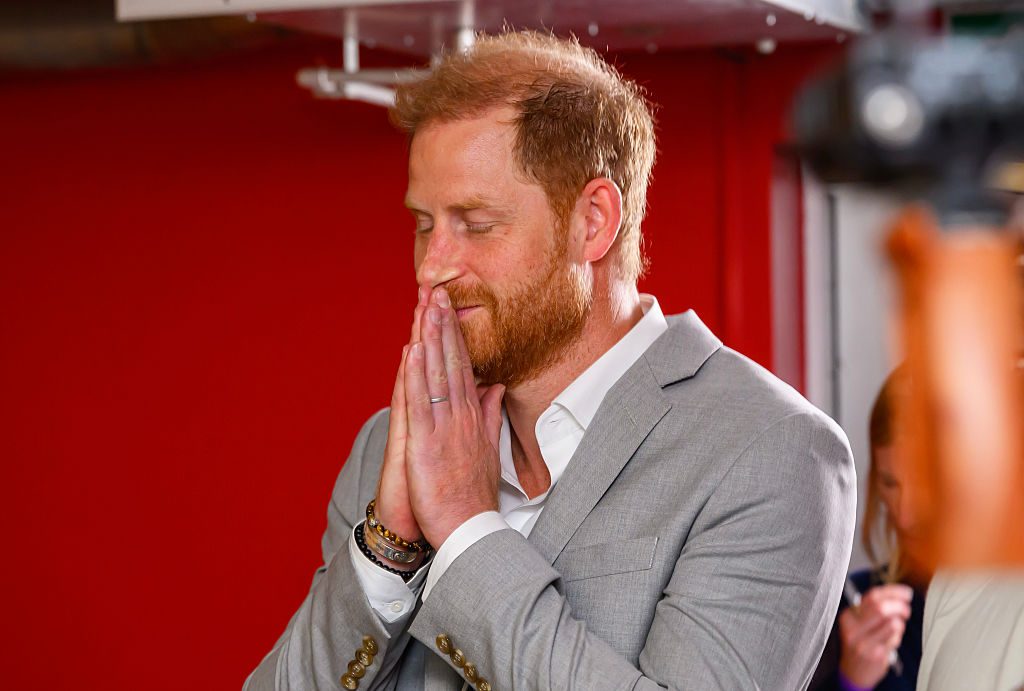Have you ever wondered what an expat prince of average intelligence sounds like, making a moral case for military values to an elite that thinks borders are immoral and war can be made illegal? Wonder no more: Harry Windsor has published an article ahead of Remembrance Sunday, in which he evokes “what it means to be British” and acknowledges our debt to those who die in service, while studiously avoiding any reference to why anyone fights wars in the first place.
The result is a sentiment that feels both genuine and stifled. We are exhorted to think deeply about the courage and sacrifice involved in soldiering, but not at all about why such sacrifices get made, or for whom. And yet, on a second read, I came to feel sorry for Prince Harry.
He is a former soldier, who — inasmuch as it’s possible to make anything from his ghostwritten memoir — seems to have genuinely enjoyed his time in the military. His championing of the Invictus Games, an athletic event for injured ex-servicemen, suggests he still cares about the issues faced by soldiers. In this context, his Remembrance exhortation feels genuine: that we should “remember not only the fallen, but the living — those who still carry the weight of war in body and mind, and the families who bear its memory in their hearts”.
But the larger context is deeply confused. Why are, or were, any of these people fighting at all? What links soldiers in Ukraine to those in Britain? Which soldiers do we remember, and why? The answer in 1914 and 1939 was reasonably clear; today, not so much. This is further complicated by the fact that although Harry isn’t a “working royal”, he must still keep in mind the interests of the Firm — namely, more or less by definition, being whatever the current regime requires them to be. Under current conditions, that means nodding along to progressive internationalism, a project that since 1945 has set out to abolish war by treaty, and more recently borders as well.
Whatever you think of that project’s wisdom or success in practice, for soldiers the problem it creates is fundamental. When politics is post-national, for whom do you fight, and why? For Harry, whose most vivid life experiences were clearly in military service, whose sympathies evidently lie with service personnel themselves, and who nonetheless has a duty to toe the establishment line, this is a knotty problem indeed.
How can a government ask people to sign up to fight and perhaps die, ostensibly for their nation and people, while every policy is ordered toward post-national universalism? Even if the paradox weren’t obvious to the governments in question, falling rates of military recruitment in Britain and elsewhere suggest that squaddies can see a church in daylight. Why fight, soldiers may ask, for a country that prioritises the needs of asylum seekers over those of veterans?
Who knows what Harry thinks of any of this. But even if he has views, and I expect he does, being a member of the Firm means he can’t express them. In their place are instead flashes of obviously genuine affinity for the British Isles and its people, ground almost featureless by the sheer volume of things about which we cannot speak without causing an almighty row.
When Harry meditates on “Antrim to Anglesey, Lancashire to London, Wrexham to the East Riding, Belfast to Bedfordshire”, it could sound naff but somehow almost doesn’t. His evocation of “the things that make us British” as being “the banter of the mess, the clubhouse, the pub, the stands, ridiculous as it sounds [sic]” is ungrammatical enough to be plausibly Harry’s words and not those of ChatGPT or a PR flunky. He seems genuinely to love his country and its people. He is no doubt fun in the pub, and probably a much better leader of men than he ever was a podcaster or professional whingebag. But he is also clearly constrained by his position from addressing any of the larger issues within which high sentiments about service and duty have begun to ring so hollow.
Confusion over the national interest; our desperately underfunded and deteriorating military supplies and capability; our complicity in forever wars; neglect of veterans; the unforgivable ARAP cover-up; our grotesque inability (or refusal) to defend our own borders; the whole ignominious mess. I read Harry’s article expecting to find something twee and British Values-y, along the usual emetic “Paddington Bear and Our NHS” lines. But the piece is far more ambiguous. It left me wondering: if Harry were to find the courage of his convictions, and speak out frankly for the soldiers and the Britain he clearly loves, what would he say?
